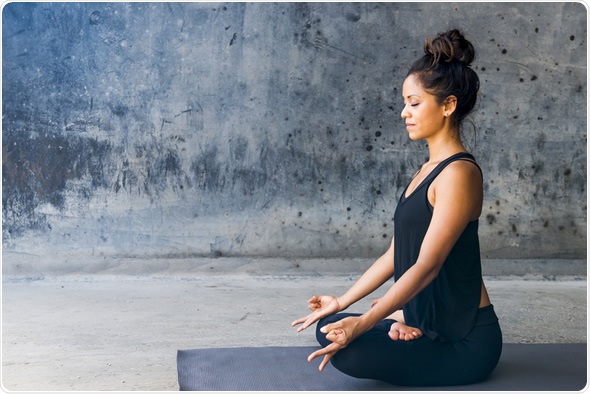Meditation has been practiced for many thousands of years. It is the practice of turning one’s attention to a sole point of reference by eliminating the distracting and stressful thoughts caused by one's external environment.
The reasoning underlying meditation is that happiness is a state of mind and a product of internal thought, one should be able to discard the external environment as irrelevant and still obtain real happiness.

Copyright: Luna Vandoorne, Image ID: 221677984 via Shutterstock
Meditation is known for its emotional benefits - of these, the key one is teaching a person how to understand their own mind. This allows one to transform their mental state at will from disturbed or negative to peaceful, positive and constructive.
This brings a person closer to a life of true happiness even if their external living conditions are not ideal. After training in meditation, the mind will gradually become more and more peaceful, and it is possible to experience a purer form of happiness. Eventually, one will gain the ability to remain happy at any time, even in the most difficult circumstances.
There is also growing research to support the positive effect of meditation on those suffering from a medical condition – this is particularly true if stress has been shown to worsen the condition. These conditions include anxiety, depression stress and addictive behaviors.
Unfortunately, not all those suffering from medical conditions benefit from meditation as they may have trouble sitting quietly, comfortably and breathing deeply for prolonged periods of time. Such people include those with attention deficit hyperactivity disorder or Schizophrenia.
In order to mediate the following four elements prove necessary to know:
A quiet setting
This is particularly vital if one is new to meditation – with practice, a person becomes more skilled and will be able to meditate in noisy, crowded places or stressful situations.
A comfortable or poised posture
This need not be in a sitting up position but can be lying down, standing up, walking – as long as the person is comfortable. With this said, meditation postures across numerous traditions all maintain a straight spine as important.
Many postures (Half-Lotus, Lotus, Burmese and Egyptian) exist but the classically practiced one is the Lotus posture i.e. the person is cross-legged but with their feet firmly on their thighs.
A passive but receptive attitude
This is possibly the most important element of meditation because it is what keeps your mind away from the many distractions which cause stress and worry. It requires a passive attitude to prevent your both the external environment and internal thoughts from disturbing your mindset.
Instead all the distractions should be able to pass freely through the mind in a detached manner. With time it becomes easier to discard yourself of thoughts and meditate.
An object of focus
You may choose to focus your attention on an object, a mantra (often a Sanskrit word) or the rhythm of your own inhaling and exhaling.
Interestingly, the word “mantra” is derived from the Sanskrit word “man” which means to think and “tra” which means to liberate – together these mean to liberate from thought. Common mantras include those with peace-bringing associations such as “peace” or “Om.”
References:
Last Updated: Nov 8, 2022